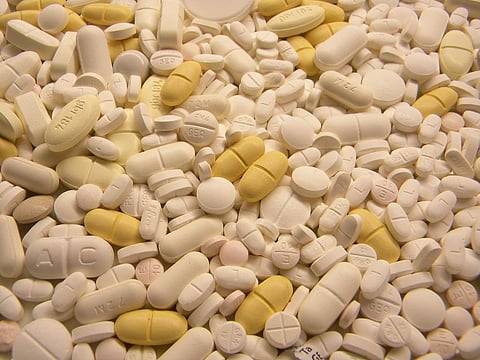

Pharmaceutical pollution is an overlooked but urgent issue that needs coordinated action from across the pharmaceutical, healthcare and environmental sectors, according to a new paper published in the journal The Lancet Planetary Health.
The academics from the University of Exeter, United Kingdom, have joined forces with thought leaders from other universities, industry, government and non-profit organisations to call for societal-wide action on reducing pharmaceutical pollution from human healthcare.
Almost half, or 43 per cent, of the world’s rivers are contaminated with active pharmaceutical ingredients in concentrations that can have disastrous ramifications on health. The domestic pharmaceutical industry needs to take the lead in limiting antibiotic pollution — one of the biggest problems the world is staring at.
Antimicrobial resistance (AMR) is often dubbed as one of humanity’s top 10 public health threats. It occurs when disease-causing pathogens develop a resistance against the pharmaceuticals that could have neutralised them.
The build-up of AMR can happen due to several factors across the human, animal and environmental ecosystems. In 2019, AMR accounted for more than half a million deaths in the European region and about five million globally.
“Many people don’t think about where our medicines come from or what happens to them after we swallow them. Medicines are a vital part of our healthcare system, so we need to find ways to use them without poisoning the environment at the same time,” said Kelly Thornber, lead author of the paper.
There has been little progress in reducing environmental pollution levels, said senior author Charles Tyler, who has been researching pharmaceuticals in the environment for almost four decades.
“Medicines are a vital part of our healthcare system, so we need to find ways to use them without poisoning the environment at the same time,” he said.
Tyler said:
Many people also dispose of unused drugs down the sink or toilet rather than returning them to pharmacies. Our wastewater treatment plants remove variable amounts of these pollutants from our sewage and for some drugs very little of them. As a consequence, drug pollution levels are rising in waterways across the UK and globally.
The project team includes external partners from across the publicly funded healthcare system in England, the National Health Service; pharmaceutical company AstraZeneca and non-departmental public body Environment Agency.
Health collaboration One Health Breakthrough Partnership; healthcare group Sustainable Healthcare Coalition and veterinary pharmaceutical company Healthcare Ocean also partook in the research work.
Academics from University College Dublin, the University of Plymouth and the University of the Highlands and Islands were also part of the team. Together, the group mapped out the UK healthcare pharmaceutical system to try to understand the issue better and pave the way for identifying solutions that consider the needs and interests of everyone involved.
The team now hopes to expand their network of interested parties from across the pharmaceutical, healthcare and environmental sectors and develop an “action platform” to promote shared dialogue, understanding and collaboration.